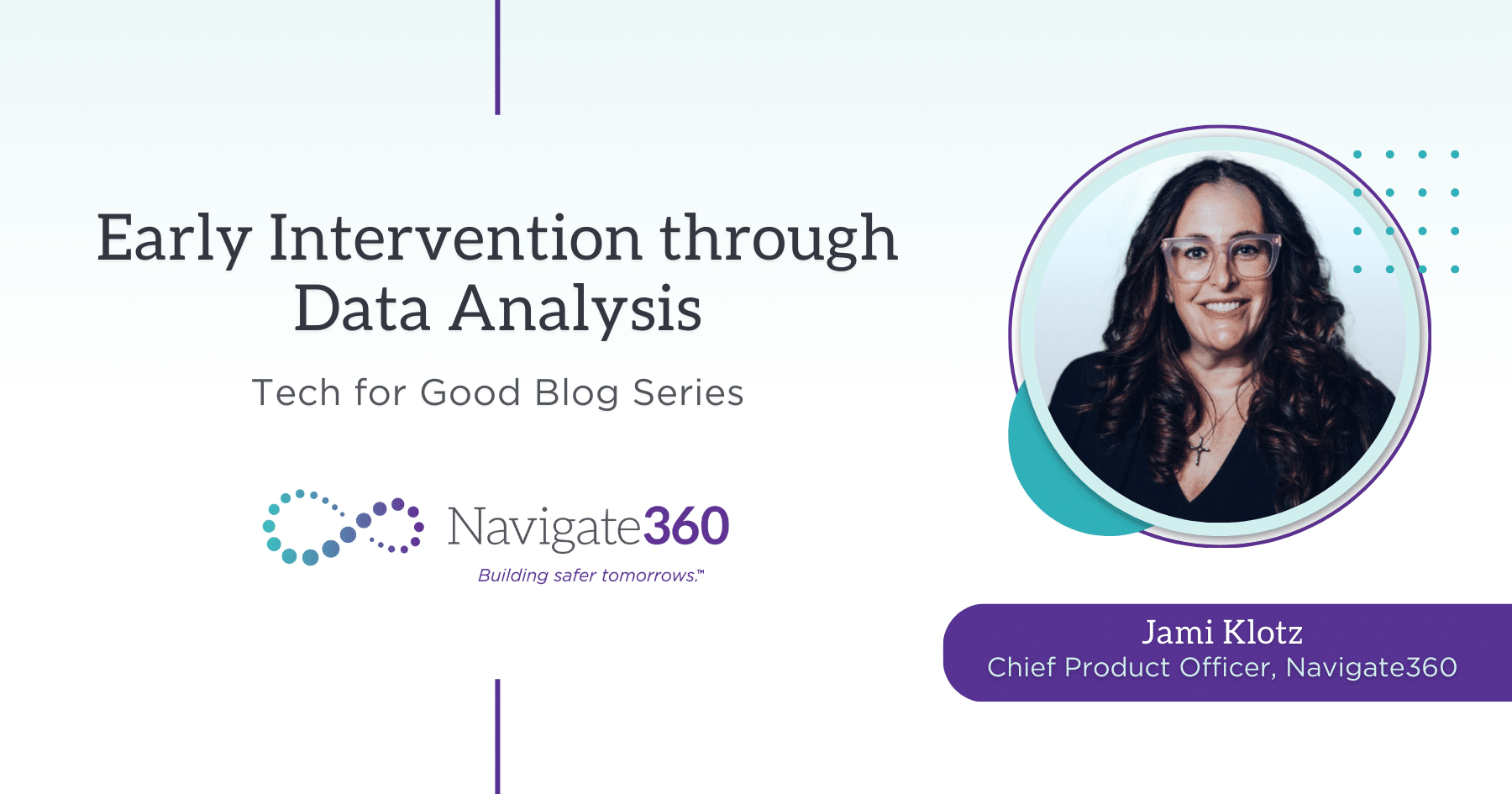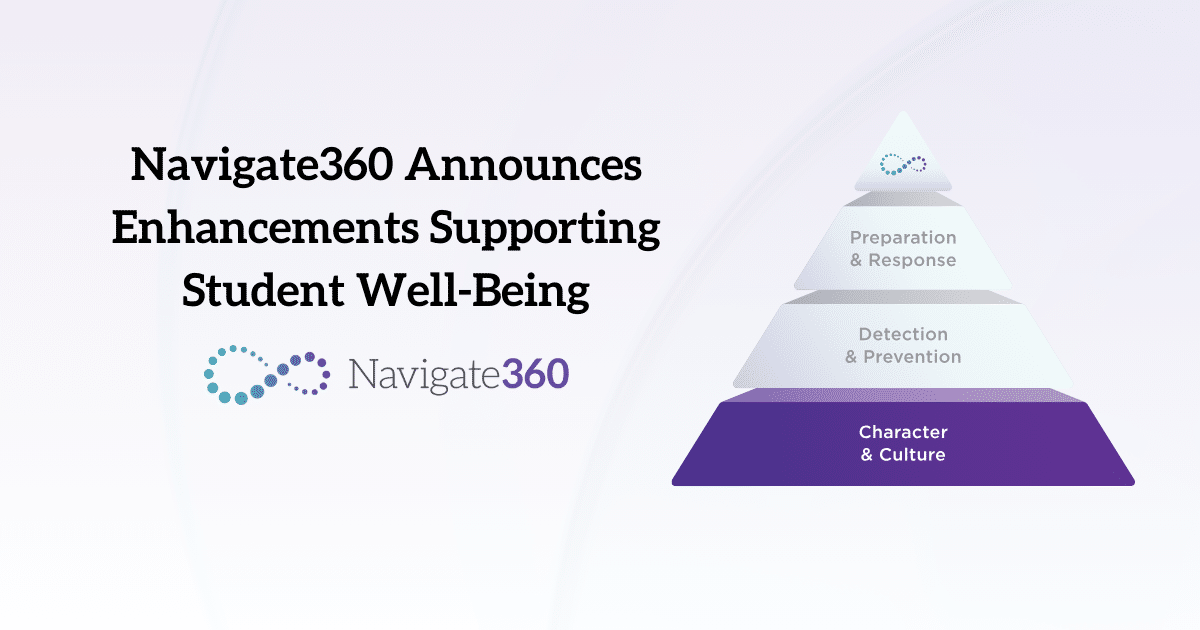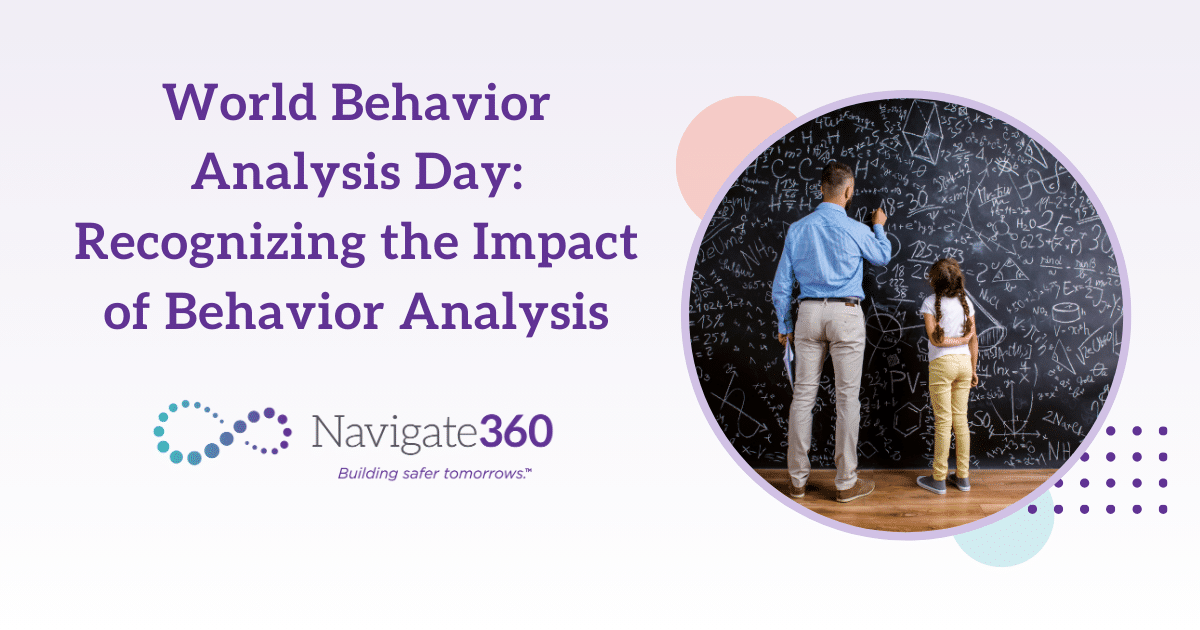By: Jami Klotz, Chief Product Officer, Navigate360
Harnessing the Power of Data and Artificial Intelligence in Teen Mental Health
Even before the pandemic, experts warned about the teen mental health crisis. In recent years, mental health issues among teenagers have reached alarming levels, with suicide being the second-leading cause of death for individuals aged 10-34 (CDC, 2022). The need for proactive measures to identify and address these issues has never been more critical. Fortunately, advancements in data analysis and artificial intelligence (AI) offer a promising solution: Early intervention through the power of data.
The Stark Reality: Alarming Statistics
Before delving into the role of data and AI, let us confront the stark reality revealed by statistics. According to the Centers for Disease Control and Prevention (CDC, 2020):
- High school students, a vulnerable demographic, reported alarming figures with 18.8% seriously considering suicide in the past year.
- Disturbingly, 8.9% of high school students attempted suicide in the past year, with higher percentages among females (11.0%), black teens (11.8%), and lesbian, gay, or bisexual teens (23.4%).
- Between 2019 and 2020, there was a staggering 30.7% increase in emergency room visits for mental health reasons among children aged 12-17.
These statistics paint a concerning picture, emphasizing the urgent need for effective strategies to address teen mental health challenges.
Data Analysis and AI as Sentinels of Teen Mental Health
Enter the realm of data analysis and AI, where technology can become a powerful ally in the battle against teen mental health issues. By leveraging diverse datasets, including academic performance, attendance, and social interactions and online behavior on school owned devices, AI algorithms can detect early signs of mental distress. This proactive approach can pave the way for timely intervention and support both in school and at home.
1. Academic Performance Insights
Academic performance often reflects a student’s mental well-being. Data analysis can identify patterns such as a sudden decline in grades, absenteeism, or changes in study habits. AI algorithms can flag these indicators, alerting educators, families, and mental health professionals to potential issues before they escalate.
2. Social Interactions and Online Behavior
Teenagers often express themselves through social interactions and online platforms. AI can analyze these interactions to detect changes in communication patterns, the use of certain keywords, or expressions indicative of emotional distress. By monitoring these digital footprints, professionals can identify early warning signs and intervene appropriately.
3. Early Detection Saves Lives
The key to addressing teen mental health issues lies in early detection. By analyzing the multiple sources of data available, it becomes evident that timely intervention can be a life-saving measure. Data-driven insights empower educators, families, and mental health professionals to reach out to students in need, providing support and resources before they escalate.
Overcoming Challenges: Privacy and Ethical Considerations
While the potential benefits of early intervention through data analysis and AI are immense, it’s crucial to address privacy and ethical considerations. Striking the right balance between safeguarding individuals’ privacy and harnessing the power of data requires careful navigation. Transparently informing families, implementing data policies that comply with federal, state, and local policies, and obtaining informed consent are essential steps in ensuring responsible use of data. There are already many laws that organizations must abide by when dealing with data, and the benefits of using the data both in aggregate and for identification of behavior are proven.
A Call to Action
In the face of escalating teen mental health challenges, early intervention through data analysis and AI emerges as a beacon of hope. By harnessing the power of technology, we can transform statistics into actionable insights, saving lives and nurturing the well-being of the younger generation. It is a collective responsibility – educators, families, mental health professionals, students, policymakers, and technologists must join forces to create a future where the power of data becomes a force for good in the realm of teen mental health. Tech for good is not a dream, it is a reality. We need to come together on this to ensure the reversal of shocking mental health statistics in order to create a healthy and thriving generation of youth!

About the Author
Jami Klotz
With over 20 years of experience in product leadership, Jami Klotz has been at the forefront of advancing big data and software products. Her expertise has helped organizations and consumers turn data into actionable insights, while leading both Product and Tech organizations through rapid growth and change in the private equity industry.
Before joining Navigate360, Jami served as Senior Vice President of Product at BigTime Software, one of Inc. 5000’s fastest-growing private companies. There, she built applications used by 2,000 firms to process $4B in billings. Jami’s career spans across several companies that include Travelclick, Orbitz, and nSight Travel Intelligence where she served as President and Chief Product Officer. Throughout her career, she has driven strategic growth, cultivated a strong brand image and defined cohesive and integrated roadmaps driven by market needs.
Jami has been a featured speaker globally on the use of big data in revenue optimization and the use of data to increase value to customers. She believes transparency and team development are key to maximizing results for all stakeholders.
Outside of her professional achievements, Jami has a strong sense of family and community. She currently resides in the suburbs of Chicago with her husband and three children. Outside of family she enjoys volunteering with groups supporting women in need as well as hiking and exploring new destinations.




